Florida officials are sending at least 140 state troopers along with various resources, such as drones and license plate readers, to popular beach towns in an “unprecedented” pre-emptive strike against spring break-related crime, Gov. Ron DeSantis said.
They will be dispatched to several spring break hot spots in south Florida, where a high concentration of troopers will patrol Miami Beach, as well as other popular areas for party seekers.
In addition to manpower, the state is sending aviation drones, mobile command vehicles to assist with traffic management and logistics, and license plate readers to “help identify subjects with outstanding warrants or driving stolen vehicles,” DeSantis said.
The Republican governor called this year’s plan an “unprecedented” action, but he doesn’t want to wait for corrective action to send state resources into cities where rowdy parties have already spiraled into pandemonium.
FORT LAUDERDALE BRACES FOR WILD SPRING BREAK WITH FREE ROOFIE DRINK TESTS, DUI ALTERNATIVES
Florida Gov. Ron DeSantis talks about using state resources to enforce law and order during spring break 2024.
Last year, Miami Beach alone had two homicides, and police made 488 arrests, including 230 felony arrests, and seized 105 firearms during the annual March madness, according to city officials and law enforcement.
Wild melees, unruly crowds, brazen shootings, stampedes and lawless behavior – some of which were captured in viral videos on social media – ran rampant through the streets of South Beach.
After situations crossed critical thresholds and were already out of control, state officials mobilized troopers and sent in backup. This year, DeSantis said they’re not waiting.
FLORIDA SPRING BREAK HAS FAMILY BEACH TOWNS BRACING FOR CROWDS AS MIAMI BEACH CRACKS DOWN
The plan is to send 60 state troopers to reinforce communities throughout South Florida, with a high concentration in Miami Beach, according to the governor.
And 60 more state troopers will mobilize in additional hot spots like Daytona Beach and Panama City Beach; and 24 quick-response troopers will be deployed in Bay, Volusia, Broward and Miami-Dade counties for immediate incidents.
“This is really unprecedented,” DeSantis said. “I don’t think we’ve ever seen the state come in this forward-leaning going into a season like this… With all things considered, I think that we’re good and prepared as we’ve ever been throughout my time in the state of Florida.”
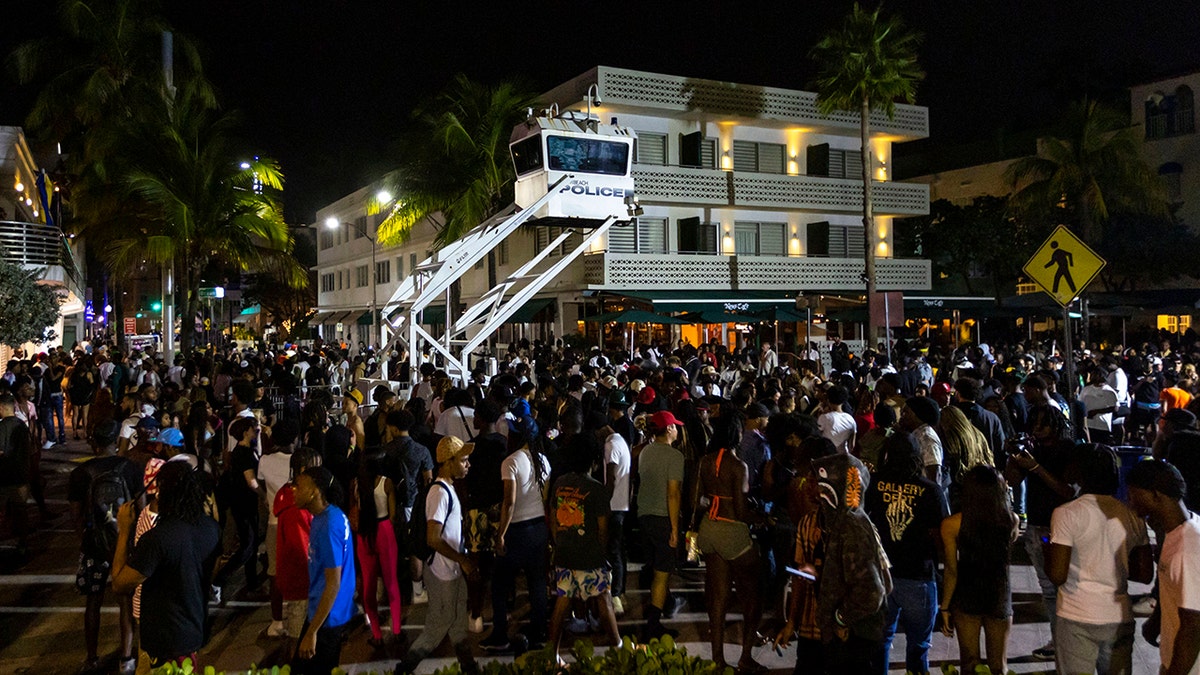
Crowds gather at Ocean Drive and 8th during spring break on March 18, 2023, in Miami Beach, Florida. (D.A. Varela/Miami Herald via AP)
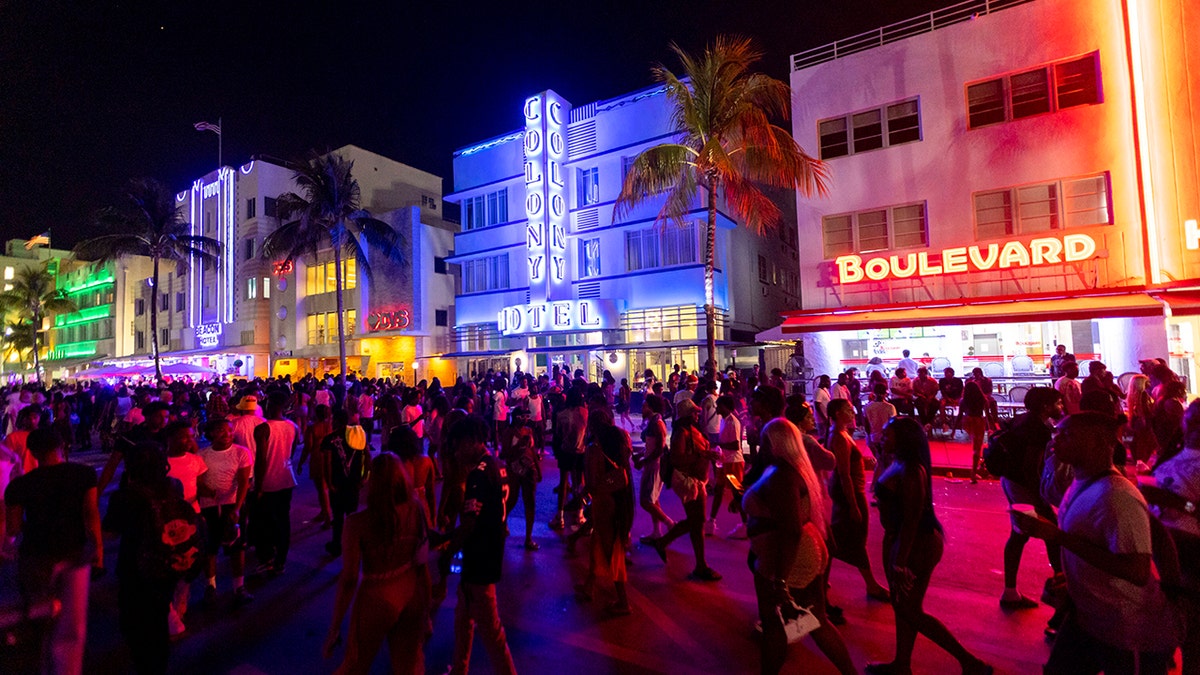
Crowds walk up and down Ocean Drive during spring break on March 18, 2023, in Miami Beach. (D.A. Varela/Miami Herald via AP)
The annual bash, which attracts mostly college-aged students from across the country, starts dribbling in during the first weekend in March, but quickly surges in the second and third weeks. The final week of the month, things begin to settle back to normalcy.
“We welcome people to come and have a good time. What we don’t welcome is criminal activity. What we don’t welcome is mayhem and people that want to wreak havoc on our communities,” DeSantis said during Tuesday’s press conference.
“Let’s just go in with all the resources right off the bat and mitigate. Because it’s one thing problems happen, and you come in and take some corrective action, but it’s better just prevent that from being necessary.”
State troopers will use aviation drones, mobile command vehicles to assist with traffic management and logistics, and Miami Beach Police Mobile automated license plate readers throughout the city.
FLORIDA SPRING BREAK PARTIERS CAUSE MIAMI MAYHEM
Miami Beach has already taken its own actions to “divorce” itself from spring break by implementing stringent guidelines (which are included below), and DeSantis said law enforcement will take safety measures a step further.
They’ll set up barricades, DUI checkpoints, parking and lane closures, increased security for residential neighborhoods, curfews, bag checks at beach access points, and beach patrols with ATVs, bikes and marine units, according to the governor.
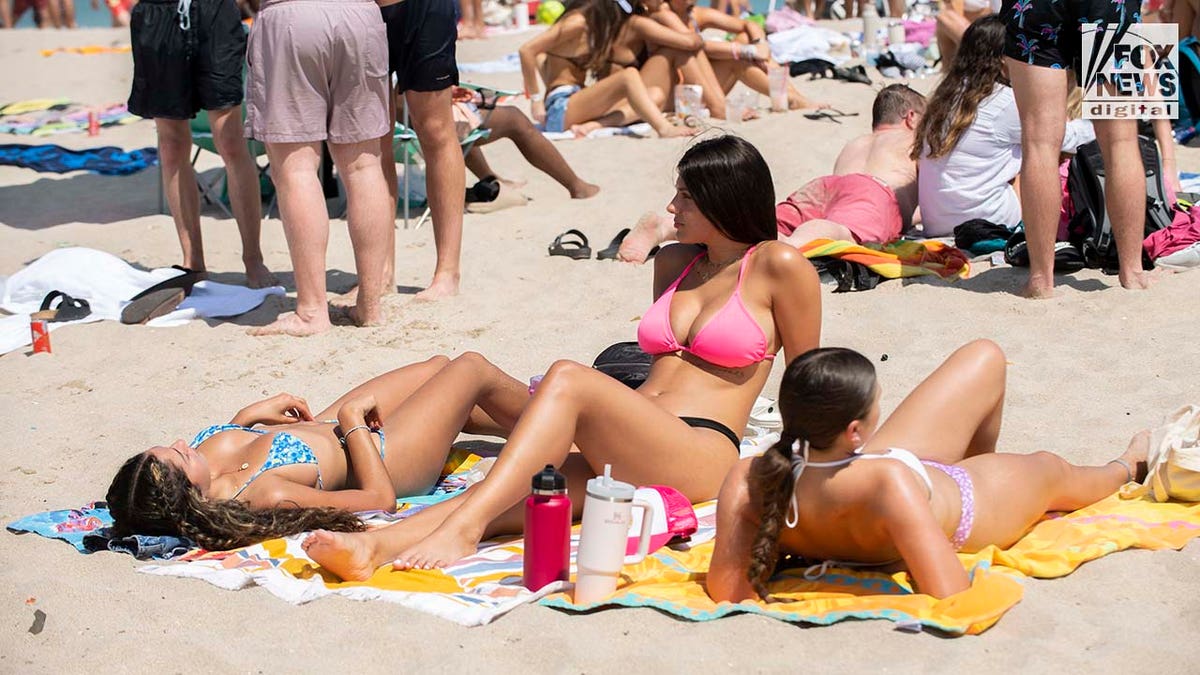
Spring breakers at Fort Lauderdale Beach, Florida, on March 18, 2023. (Julia Bonavita/Fox News Digital)
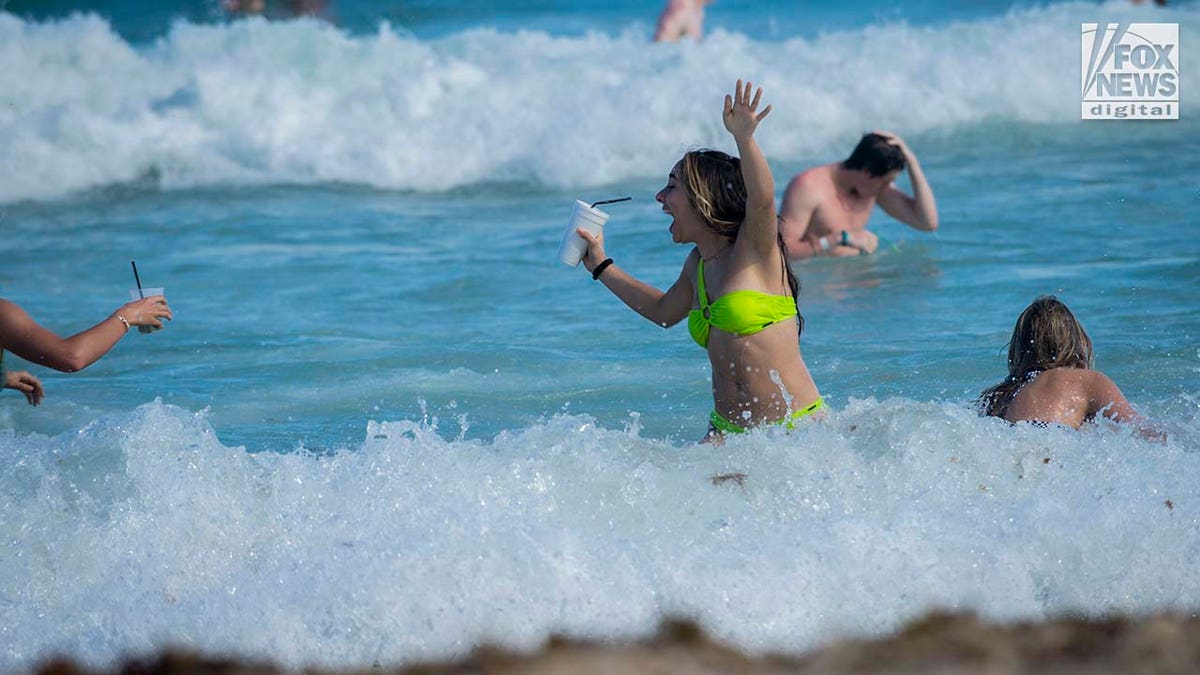
Miami Beach has already taken its own actions to “divorce” itself from spring break by implementing stringent guidelines. (Julia Bonavita/Fox News Digital)
Miami Beach Mayor Steven Meiner, who spoke during the press conference, pointed to the “law & order” sign taped to the podium and said, “If I had to pick (a sign), this is exactly what I would have put up here.”
The mayor, who ran his campaign with a “tough on crime” slogan, said, “I started talking about law and order about a year ago, and I started substituting the word ‘law and order’ instead of ‘public safety.’
“And there were some people, people who were friends of mine and supporters, who said, ‘Maybe you should tone it down a little bit. It’s a little strong.’ I said, ‘That’s exactly the point. We want to be strong. We want to be strong and send that message.'”
SPRING BREAK DANGERS: 5 AMERICANS WHOSE VACATIONS ENDED IN DEATH
This spring break, he wants to set a tone that crime, like in previous years, won’t be tolerated. He said to expect to see about 45 state troopers, along with “extensive” Miami Beach police patrolling the city over the next four weeks.
“This is a pivotal moment for our city,” Meiner said. “Spring break. It’s been a problem for the last several years… The presence and the message that we are sending is that spring break is over, and our breakup with spring break is made loud and clear.”
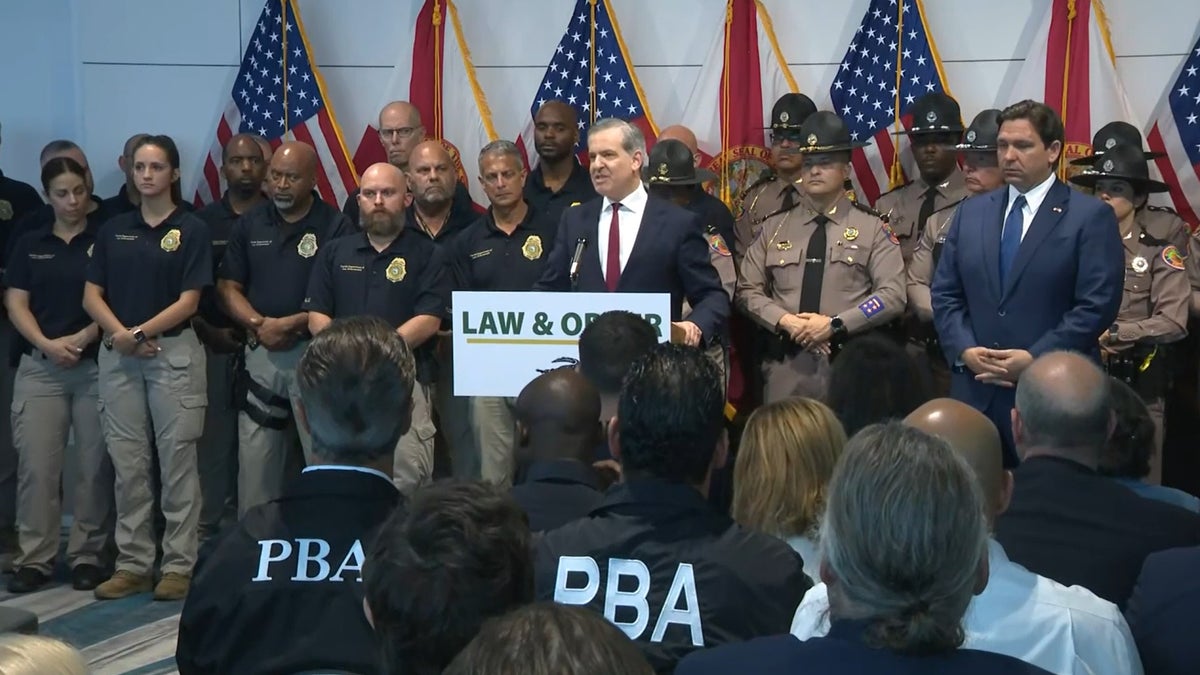
Mayor Steven Meiner speaks at the podium, with Gov. Ron DeSantis nearby, about Miami Beach’s spring break crackdown on March 5, 2024.
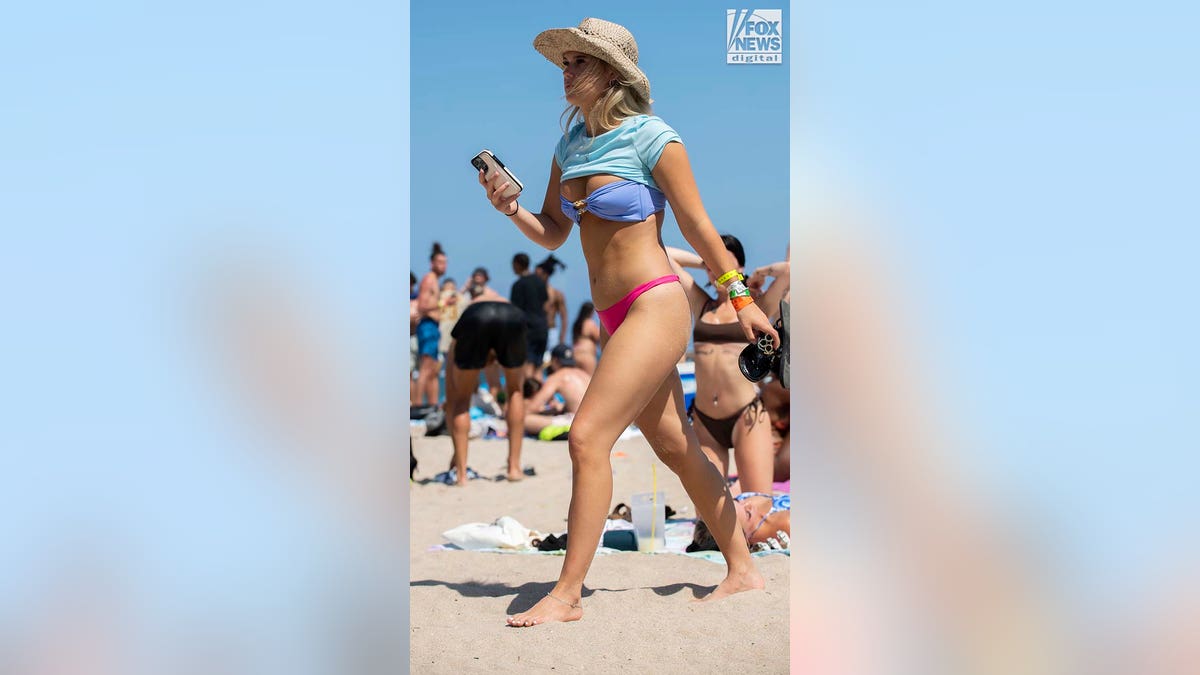
Miami Beach plans security checkpoints and bag checks to enter the beach. (Julia Bonavita/Fox News Digital)
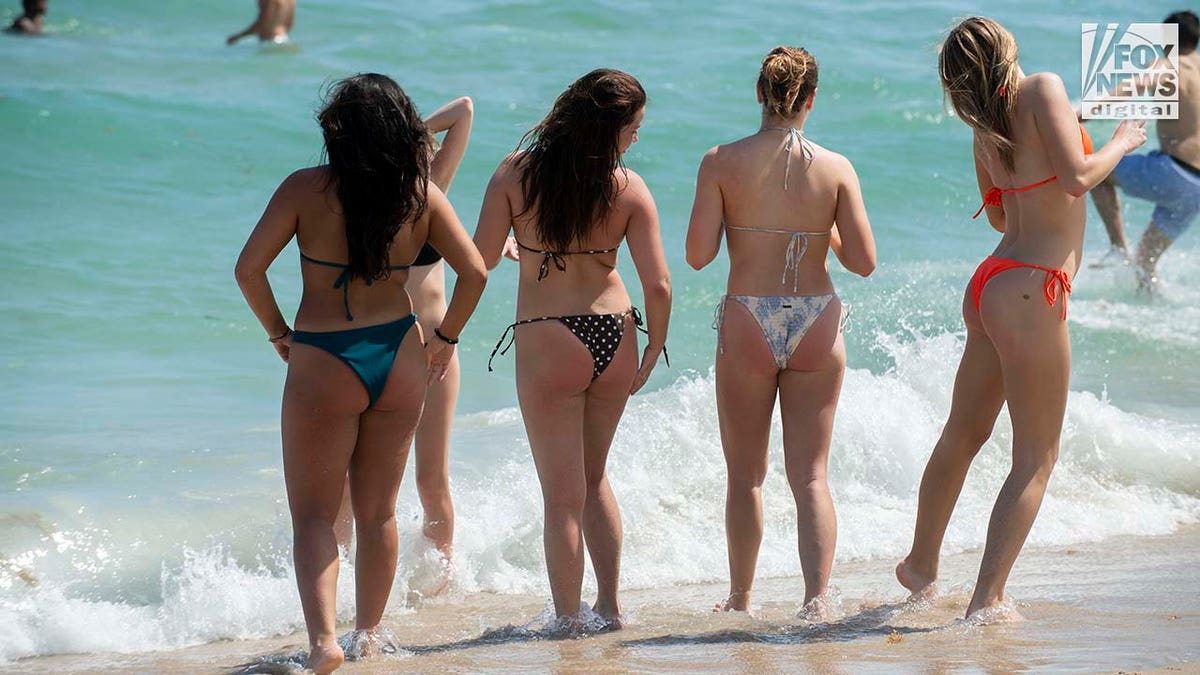
Beach entrances will close at 6 p.m. for spring break. (Julia Bonavita/Fox News Digital)
What changes did Miami Beach implement?
In addition to curfews, the Miami Beach City Commission made other changes – laid out on a city webpage titled “Miami Beach is breaking up with spring break” – which will last through March:
- A flat $30 parking rate at city garages and lots in South Beach ($100 from March 7-10 and March 14-17) except for residents and employees
- Restricted entry to those garages and lots after 6 p.m.
- A double towing rate of $516 for nonresidents
- Security checkpoints and bag checks to enter the beach
- Beach entry via Ocean Drive limited to Fifth, 10th and 12th streets
- Closure of those beach entrances at 6 p.m.
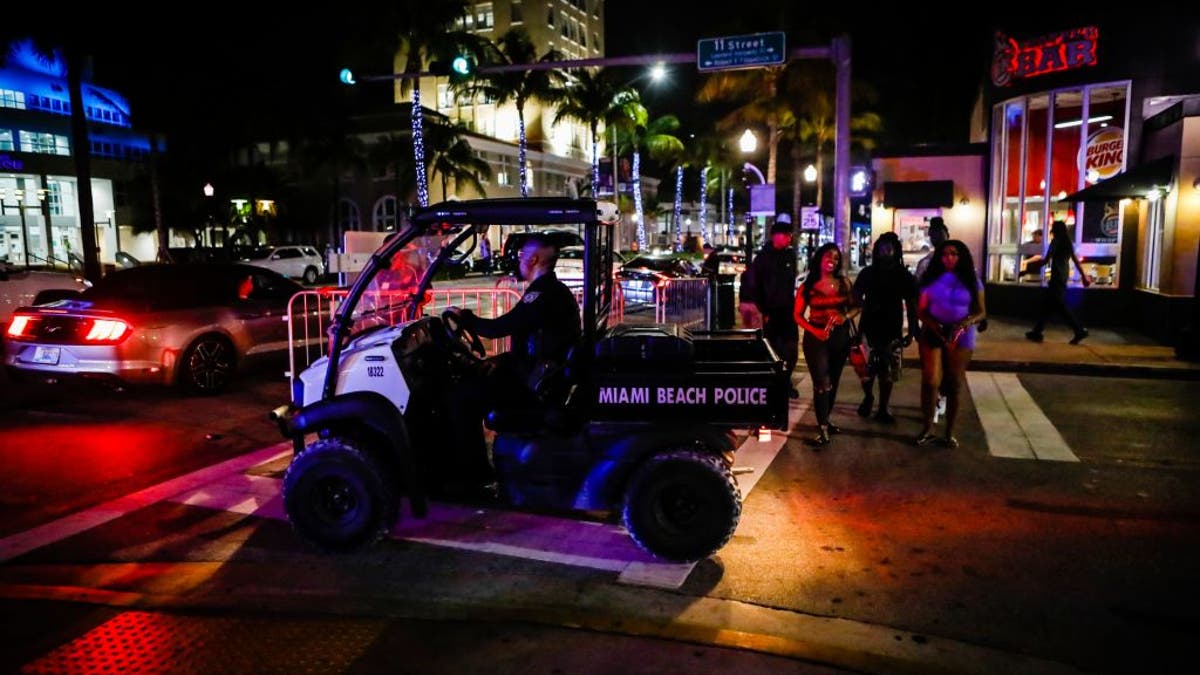
A Miami Beach Police officer exits a closed road during spring break in Miami Beach, Florida. Florida state troopers will be in town to assist local law enforcement this weekend. (Eva Marie Uzcategui/AFP via Getty Images)
Additional measures will take effect during the March 7-10 and March 14-17 weekends, including:
- License plate readers on the eastbound lanes of the Julia Tuttle and MacArthur causeways from March 8-10 and March 15-17 starting at 6 p.m., which are expected to cause significant traffic delays
- A DUI sobriety checkpoint on Fifth Street on March 8-9 and March 15-16
- A ban on rentals of Slingshots, golf carts, electric scooters and other motorized vehicles from March 7-10 and March 14-17
There’s also discussion about temporarily repealing an option for civil citations for low-level marijuana possession, the Miami Herald reported.
Miami Beach Police Chief Wayne Jones said during a February meeting that people can expect license plate readers, DUI checkpoints and more police in South Beach “than you’ve ever seen before.”
CLICK HERE TO GET THE FOX NEWS APP
“It will be difficult to get here to our city, and once you get here, the expectation will be that you play by the rules,” he said, according to the Miami Herald.
“If you are looking to cause problems, do not come to Miami Beach…. Our message is simple: we want people to enjoy their time here, but will not tolerate the behavior we have witnessed in the past few years.”
Fox News Digital’s Julia Bonavita contributed to this report.